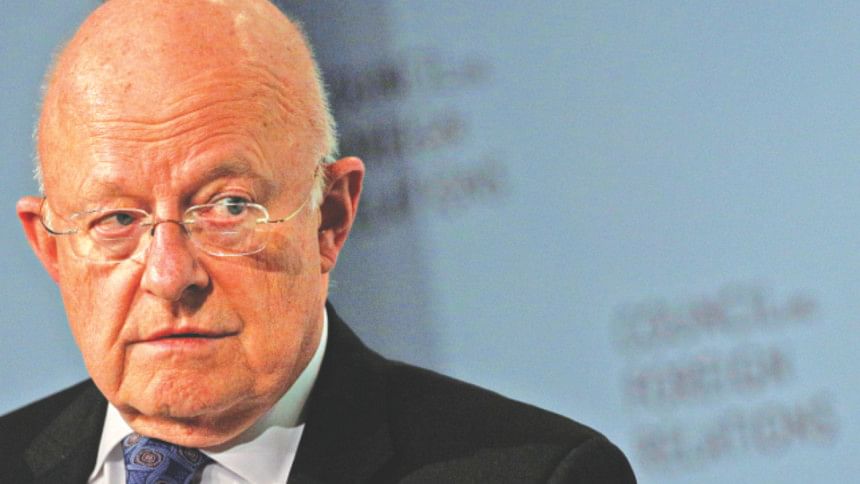Clapper, US intel chief, resigns

US intelligence chief James Clapper, whose 2013 denial that the US collects personal communications data on millions of citizens led to the stunning Snowden spying expose, on Thursday announced his resignation.
After six years as Director of National Intelligence, Clapper told a congressional hearing that he would step down on January 20, the day Donald Trump is to be sworn in as US president.
Coming after rumors that he might stay on for a new term, his departure would leave another major position to fill for the incoming Trump administration.
Clapper, whose job was to coordinate the work of 17 disparate operations like the Central Intelligence Agency and the National Security Agency, said resigning "felt pretty good."
"I've got 64 days left and I think I will have a hard time with my wife for anything past that," he said.
One name circulating as a replacement for Clapper was former Defense Intelligence Agency director and former deputy director of national intelligence Lieutenant General Ronald Burgess.
Clapper was a career officer in the US Air Force, rising in the electronic intelligence wing to eventually become head of the Defense Intelligence Agency in 1991.
As US intelligence czar from 2010, Clapper was praised for improving the coordination of intelligence between often-competing and turf-sensitive agencies.
The Office of the Director of National Intelligence was created after the September 11, 2001 attacks exposed weaknesses in assembling scattered intelligence from different agencies which might have prevented those attacks.
Since then, there have been no major foreign attacks on US soil, but a number of deadly home-grown "lone wolf" incidents that experts say are hard to prevent.

 For all latest news, follow The Daily Star's Google News channel.
For all latest news, follow The Daily Star's Google News channel. 



Comments